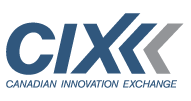Fred Wilson wrote a few posts about marketing in startups. He really put his unvarnished opinion out there and circled back with a bug report. Sometimes when you put your opinions on paper your expose your blind spots. Fred had a few (saas, b2b, etc) that he acknowledged in the bug report.
Howard followed up with a great post about his experience with Stocktwits. Three years in and he is just starting to look at broad acquisition channels. It makes sense because once you have the product in the right place then you can pour some fuel on the fire. Sometimes it takes 3 years, sometimes it takes more.
A few weeks ago I was having a conversation with Mike McDerment, the co-founder and CEO of Freshbooks. I asked him about their sales operation. I wanted to know about their inside sales operation but his response was “well, our support department is our sales department”. Ok, who is your support department then? — “everyone“.
In the following days I had similar conversations with Ali at Well.ca and Dan Debow at Rypple. They all have different configurations but the theme was the same: We are doing this ourselves.
Sales, Marketing, PR and Support are not seperate functions in an early stage startup. Your team DNA has to be created to allow you to execute on all of these disciplines internally and to continually improve related processes. Your developers need to be integrating marketing tools in to your product and they must understand the marketing process to do that. Marketing needs to live and die by the product and in the beginning it needs to BE the product.
That is where I see the difference between great founder/CEOs and those who misunderstand the role. A great CEO knows that it is more painful to build these skills inside the house rather than outsourcing them, but they understand that the long term benefit is more than worth it.
In the beginning everyone is a generalist. To some degree everyone must understand everyone elses capabilities. This creates an environment of trust, respect and transparency. Development is necessarily linked to marketing, sales, support and other functions. Making sure that this happens is difficult. It is some of the hardest work you will ever do as a leader because it means exposing your own weaknesses. It means that you too have to learn from those around you. You must become a pupil again.
Build for speed of execution, the rest will come. Hustle is a big word. A startup with hustle is one that can execute rapidly, find weaknesses, and then execute again.
At one of my previous startups we had raised a decent amount of capital. We had enough that you could theoretically fix any problem with money. We could have just outsourced a problem and voila— fixed. I had a partner who had been through it before though, and he knew that wasn’t the long term solution. So we built every important competency internally and it was HARD. It caused a lot of frustration and it slowed us down at times, but he put our feet to the fire and made sure we even got a little burned. In the end I believe it paid off in multiples. We got fast and efficient and when we did separate the roles out more clearly it was painless and that was years into it.
Every startup comes to a point when they need to start separating and segregating some functions, but that should happen when you are done experimenting and you are ready to execute more broadly and deeply. We all grow up but it is dangerous if it happens too soon. The scale and timing is different for every startup. It is what Howard is doing and it is what we all have to do someday.
 On the heels of yesterday’s acquisition of Tungle, BMC Software has announced today that they have acquired Montreal’s Coradiant, which was co-founded by Year One Labs partner Alistair Croll. We are happy that Montreal has managed to win something in the last few days.
On the heels of yesterday’s acquisition of Tungle, BMC Software has announced today that they have acquired Montreal’s Coradiant, which was co-founded by Year One Labs partner Alistair Croll. We are happy that Montreal has managed to win something in the last few days. I know that
I know that 

 A lot of people talked shit about the recent valuation of Kik. It all seemed a bit insane and I admit the numbers I heard seemed wild. That was until
A lot of people talked shit about the recent valuation of Kik. It all seemed a bit insane and I admit the numbers I heard seemed wild. That was until 

 I always like to say that a little vendetta is healthy for a startup. A vendetta, or
I always like to say that a little vendetta is healthy for a startup. A vendetta, or